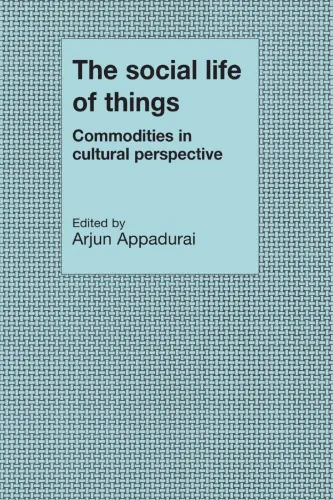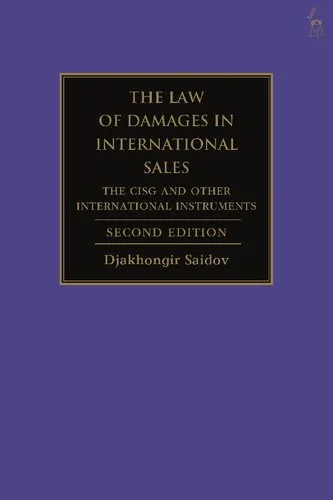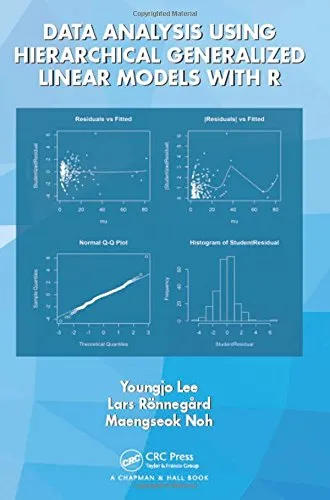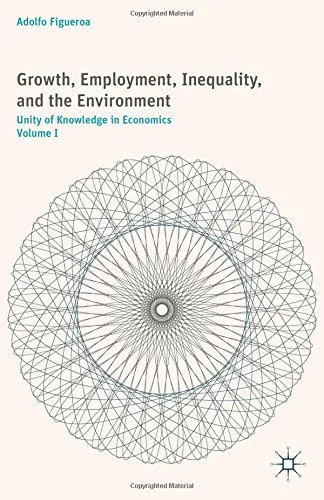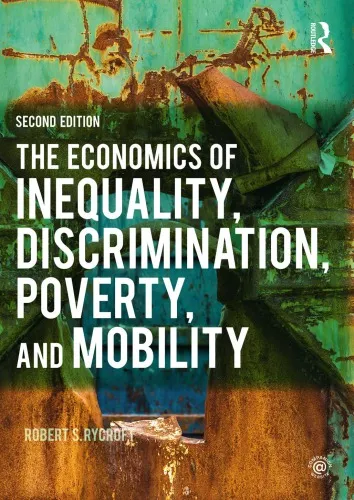The Social Life of Things: Commodities in Cultural Perspective
4.5
بر اساس نظر کاربران

شما میتونید سوالاتتون در باره کتاب رو از هوش مصنوعیش بعد از ورود بپرسید
هر دانلود یا پرسش از هوش مصنوعی 2 امتیاز لازم دارد، برای بدست آوردن امتیاز رایگان، به صفحه ی راهنمای امتیازات سر بزنید و یک سری کار ارزشمند انجام بدینکتاب های مرتبط:
خلاصه تحلیلی کتاب
کتاب The Social Life of Things: Commodities in Cultural Perspective مجموعهای از مقالات علمی است که زیر نظر Arjun Appadurai گردآوری شده و هدف آن بررسی مسیرهای متفاوتی است که کالاها در بسترهای فرهنگی و اجتماعی طی میکنند. این اثر، با محوریت مفهوم «زندگی اجتماعی اشیاء»، تلاش دارد خواننده را از نگاه صرفاً اقتصادی به کالاها فراتر برده و آنها را همچون موجوداتی با سیر تحول، معنا و هویت فرهنگی نشان دهد.
در این کتاب، نویسندگان مختلف با تکیه بر مطالعات میدانی، تحلیل نظری و مثالهای تاریخی، به پرسشهایی درباره چگونگی خلق ارزش، مبادله، مصرف و نمادپردازی کالاها پاسخ میدهند. کالاها نه تنها ابزار مبادله اقتصادی، بلکه حاملان نشانههای فرهنگی و اجتماعیاند که با دستبهدست شدن میان افراد، تغییر معنا مییابند.
این رویکرد، خواننده را به سوی نگاهی میانرشتهای هدایت میکند؛ نگاهی که اقتصاد، انسانشناسی، جامعهشناسی و مطالعات فرهنگی را در هم میآمیزد تا فهم عمیقتری از جریانهای جهانی و محلی کالا فراهم شود.
نکات کلیدی و کاربردی
یکی از نکات اساسی کتاب، فراتر رفتن از دیدگاه کلاسیک درباره کالاهاست؛ دیدگاهی که آنها را صرفاً اشیاء بیجان میبیند. در اینجا، کالاها همچون بازیگران فعال در صحنه فرهنگی و اجتماعی معرفی میشوند. این نگاه، برای پژوهشگران حوزه انسانشناسی اقتصادی و فرهنگ مصرف بسیار آموزنده است.
نکته دیگر، تأکید بر مفهوم «trajectory» یا مسیر هر کالا است. هر شیء، از تولید تا مصرف و حتی بعد از آن، در شبکهای از روابط انسانی و فرهنگی حرکت میکند که ارزشها و معناهای آن را تغییر میدهد.
همچنین، کتاب نشان میدهد که ارزش کالا تنها در بازار تعیین نمیشود، بلکه بستگی به زمینه فرهنگی، مناسبات اجتماعی و حتی خاطرات جمعی دارد. این بینش، کاربرد فراوانی در تحلیل پدیدههایی چون برندینگ، میراث فرهنگی و تجارت جهانی دارد.
نقلقولهای ماندگار
در خلال کتاب، جملات و ایدههایی مطرح شدهاند که درک ما از زندگی اجتماعی کالاها را دگرگون میکنند. این نقلقولها، به جای بازگویی ساده، پنجرهای تازه به جهان مصرف و مبادله میگشایند.
کالاها فقط وقتی به ما معنا میدهند که مسیر زندگی آنها را بشناسیم. نامشخص
ارزش، نه یک دادهٔ ثابت، بلکه نتیجهٔ گفتوگو میان فرهنگ و بازار است. نامشخص
چرا این کتاب اهمیت دارد
اهمیت The Social Life of Things: Commodities in Cultural Perspective در این است که با رویکردی نوآورانه، نقطه تلاقی اقتصاد و فرهنگ را آشکار میکند. بسیاری از مطالعات اقتصادی، کالاها را از بستر فرهنگیشان جدا کرده و تنها به مبادلات عددی توجه دارند؛ اما این کتاب نشان میدهد که این جداسازی، فهم ما را ناقص میسازد.
این اثر، برای پژوهشگرانی که به دنبال درک پیچیدگیهای معنای ارزش و فرآیندهای مصرف در جوامع مختلف هستند، منابعی غنی فراهم میآورد. همچنین، دانشجویان حوزه مطالعات فرهنگی، جامعهشناسی و حتی بازاریابی میتوانند از بینشهای آن برای تحلیل پروژههای خود بهره گیرند.
کتاب، مخاطب را به سوی نگاهی نسبیگرایانه سوق میدهد؛ نگاهی که میپذیرد اشیاء در جوامع و فرهنگهای گوناگون، نقشها و ارزشهای متفاوتی دارند.
نتیجهگیری الهامبخش
در نهایت، The Social Life of Things: Commodities in Cultural Perspective ما را به تأملی عمیق درباره جایگاه کالاها در زندگی انسانی فرامیخواند. این کتاب ثابت میکند که اشیاء، بهسان موجوداتی با حافظه و مسیر، بر هویت فردی و جمعی تأثیر
Analytical Summary
Published under the editorship of Arjun Appadurai, The Social Life of Things: Commodities in Cultural Perspective is considered a landmark in anthropological and cultural studies scholarship. This volume brings together a diverse range of essays by leading thinkers who collectively explore how commodities are not merely economic objects, but also carriers of cultural value, identity, and meaning.
At its core, the book reframes the understanding of commodities from static items of trade to dynamic entities embedded in social life. Contributors investigate the trajectories of objects—how they move through systems of exchange, how value is assigned, and how meaning transforms across contexts. These analyses bridge anthropology, sociology, history, and cultural economics, providing a multifaceted view of material culture.
Beyond a purely economic lens, the essays emphasize the symbolic and relational aspects of commodities. The collection challenges traditional market-centric perspectives by situating goods within ritual, heritage, colonialism, globalization, and everyday life. Through comparative case studies—spanning various times and geographies—the volume critiques simplified notions of value, exchange, and consumption.
Key Takeaways
For academics, professionals, and serious readers, this book offers several enduring insights that extend beyond anthropological theory into practical considerations for cultural analysis, economic history, and contemporary global trade studies.
First, commodities cannot be understood in isolation from their social and cultural contexts. Economic exchange is always intertwined with symbolic exchange, shaping identities and communities.
Second, the life cycle of a commodity—from production to consumption—includes stages where its meaning evolves, sometimes dramatically, depending on who possesses it and under what circumstances.
Third, the book illustrates how global flows of goods are deeply influenced by local traditions, political economies, and historical narratives.
Fourth, interdisciplinary approaches are crucial: understanding commodities invites collaboration between anthropologists, historians, economists, and cultural theorists.
Finally, the work demonstrates that value is not an inherent property of objects but is socially constructed, negotiated, and contested over time.
Memorable Quotes
Commodities, like persons, have social lives.Unknown
Economic value is never purely economic—it is always also cultural.Unknown
Objects are not inert; they actively participate in the social fabric.Unknown
Why This Book Matters
This book is widely recognized as a foundational text for anyone exploring the intersection of economy and culture. It stands out for its insistence that commodities must be analyzed through their social contexts, and for its integration of diverse disciplinary voices.
The Social Life of Things: Commodities in Cultural Perspective has influenced generations of scholars in anthropology and beyond. While Information unavailable regarding formal awards due to no reliable public source, its theoretical framework continues to shape research agendas in both academic and applied settings.
In an age of globalization, transnational flows of goods and ideas are accelerating. This makes the book's insights into cultural economics and commodity exchange anthropology especially timely. By foregrounding the narratives embedded within objects, it pushes readers to rethink simplistic divisions between the economic and the cultural.
Inspiring Conclusion
Whether you are an academic researcher, a professional in cultural policy, or a curious reader, The Social Life of Things: Commodities in Cultural Perspective offers a paradigm-shifting way to see the world of goods. It invites you to recognize that every object has a biography, shaped by human interactions, cultural meanings, and historical circumstances.
Approaching commodities as actors within social life challenges conventional economic narratives and opens the door to richer, more inclusive analysis. The book's thematic depth and interdisciplinary appeal make it an essential addition to any serious library on material culture or cultural economics.
Now is the perfect opportunity to read, share, and discuss the insights found within its pages. By engaging with its ideas, you contribute to a continuous, collective conversation about the ways in which the material world reflects and shapes our shared humanity.
دانلود رایگان مستقیم
شما میتونید سوالاتتون در باره کتاب رو از هوش مصنوعیش بعد از ورود بپرسید
دسترسی به کتابها از طریق پلتفرمهای قانونی و کتابخانههای عمومی نه تنها از حقوق نویسندگان و ناشران حمایت میکند، بلکه به پایداری فرهنگ کتابخوانی نیز کمک میرساند. پیش از دانلود، لحظهای به بررسی این گزینهها فکر کنید.
این کتاب رو در پلتفرم های دیگه ببینید
WorldCat به شما کمک میکنه تا کتاب ها رو در کتابخانه های سراسر دنیا پیدا کنید
امتیازها، نظرات تخصصی و صحبت ها درباره کتاب را در Goodreads ببینید
کتابهای کمیاب یا دست دوم را در AbeBooks پیدا کنید و بخرید
1507
بازدید4.5
امتیاز0
نظر98%
رضایتنظرات:
4.5
بر اساس 0 نظر کاربران
Questions & Answers
Ask questions about this book or help others by answering
No questions yet. Be the first to ask!
